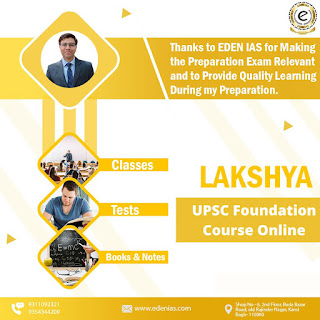How to divide the UPSC preparation in multiple levels for a fruitful revision?
Effective revision is an essential part of preparing for the Union Public Service Commission (UPSC) Civil Services Exam (CSE). Proper revision helps you consolidate your learning, reinforce your understanding of the concepts, and identify your strengths and weaknesses. Here are some tips on how to divide your UPSC preparation into multiple levels for a fruitful revision:
The first step in effective revision is to create a revision schedule that outlines the topics you need to cover and the time you will devote to each topic. A revision schedule helps you stay organized and ensure that you are covering all the necessary material in a systematic way.
Break down the syllabus into smaller chunks
The UPSC CSE syllabus is vast and covers a wide range of topics. It is important to break down the syllabus into smaller chunks and focus on one topic at a time. This will help you retain the information better and avoid feeling overwhelmed by the sheer volume of material.
Prioritize the most important topics
Some topics are more important than others in the UPSC CSE. It is important to prioritize the most important topics and allocate more time to revising them. You can use previous year's question papers and study materials to identify the most important topics.
Use a variety of revision techniques
Different people learn in different ways, and it is important to find the revision techniques that work best for you. Some people find it helpful to revise with flashcards, while others prefer to use mind maps or summarization techniques. Experiment with different revision techniques and find out what works best for you.
Take regular breaks
Revision can be mentally and physically exhausting, and it is important to take regular breaks to recharge your batteries. Taking short breaks helps you stay focused and avoid burnout.
Seek feedback
Getting feedback on your revision is an important part of the process. You can seek feedback from your peers, mentors, or teachers to get a sense of how well you are progressing and identify areas for improvement.
In conclusion, dividing the UPSC preparation into multiple levels can be an effective strategy for revision. By breaking down the material into smaller, more manageable chunks, you can focus on one level at a time and thoroughly review the content before moving on to the next level. This can help you retain the information better and feel more confident about your knowledge as you progress through your studies. Additionally, by dividing the material into levels, you can more easily track your progress and identify areas where you need to spend more time reviewing. Overall, dividing the UPSC preparation into multiple levels can be a valuable technique to help you succeed on the exam.
Also, if you feel difficulty in covering the syllabus of the UPSC exam, you can consider joining the best foundation course for UPSC which is LAKSHYA. This is a 3 year course, wherein the entire syllabus is covered in a graded and sectoral manner, starting from basics and then moving on to advanced level. This course will cover the entire syllabus of UPSC CSE via class lectures, tests, answer-writing, guidance and mentorship. So, without any further delay, streamline your preparation in the right direction with the Lakshya course.




Comments
Post a Comment